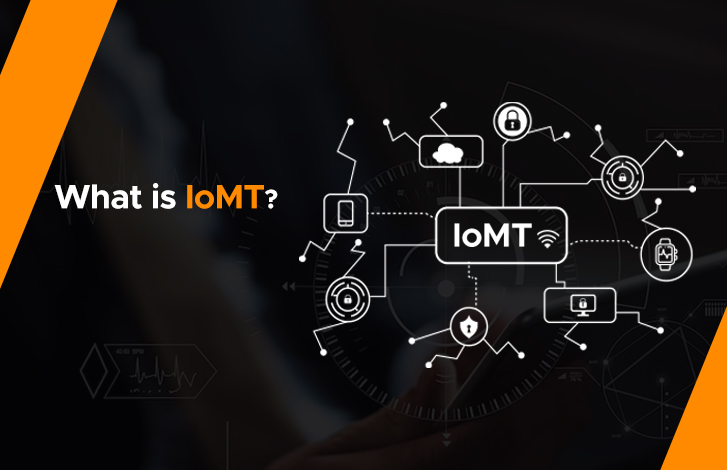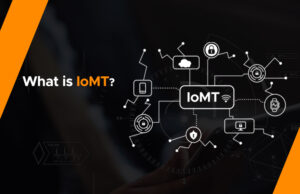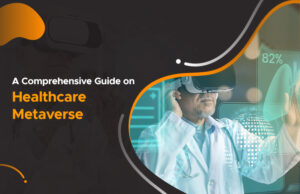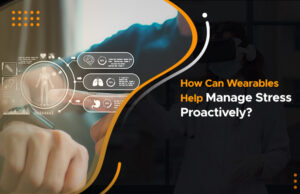In the past few years, the significance of technology in healthcare has grown considerably. From electronic health records to telemedicine, technological advances have improved how healthcare is delivered. One of the most promising developments in this field is the Internet of Medical Things (IoMT).
Dr. David Rhew, Chief Medical Officer and Head of Healthcare and Fitness at Samsung Electronics America, explains, “The Internet of Medical Things (IoMT) refers to integrating medical devices and software with healthcare IT systems via online networks. IoMT devices have sensors that collect and transmit data to healthcare providers for analysis and action.”
What is IoMT?
The Internet of Medical Things (IoMT) is a connected medical device and application system that collects data and communicates with healthcare IT systems through online computer networks. These devices can range from wearable fitness trackers to implantable medical devices such as pacemakers. This technology has the potential to revolutionize healthcare by improving patient outcomes and reducing costs.
The data collected by these devices can be used to monitor patient health and provide real-time feedback to healthcare providers. This enables the creation of treatment plans that are more tailored and efficient.
According to a report by Fortune Business Insights, the global Internet of medical things market size is projected to reach USD 187.60 billion by 2028 and exhibit a CAGR of 29.5% during the forecast period.
How does IoMT work?
IoMT devices are equipped with sensors that collect data on various health metrics. This data is transmitted to healthcare IT systems through online computer networks. Healthcare providers can then access this data and use it to make informed decisions about patient care.
What are some examples of IoMT devices?
- Some common examples of IoMT devices include:
- Wearable fitness trackers that monitor physical activity and heart rate
- Blood glucose meters that track blood sugar levels in diabetic patients
- Blood pressure monitors that measure blood pressure in hypertensive patients
- Cardiac devices that can be implanted, like pacemakers and defibrillators
The Impact of IoMT on Healthcare
The benefits of IoMT in healthcare are numerous. IoMT devices can help healthcare providers make more informed treatment decisions by providing real-time patient health data. This can result in better outcomes for patients and lower costs for healthcare.
IoMT can also improve patient engagement and satisfaction by giving them more control over their health. Patients can access their data using connected devices and see how their behaviors impact their health. This can motivate them to follow their treatment plans and adopt healthy lifestyles.
IoMT can also reduce the burden on healthcare staff by enabling remote monitoring and data-driven decisions. IoMT can help achieve better health outcomes, lower costs, and more personalized care.
How does IoMT improve patient outcomes?
IoMT devices provide healthcare providers with real-time data on patient health. This allows them to make more informed decisions about treatment and adjust care plans as needed. As a result, patients receive more personalized and effective care, which can lead to improved outcomes.
How does IoMT reduce healthcare costs?
By providing real-time data on patient health, IoMT devices can help healthcare providers identify potential health issues before they become serious. This allows for early intervention and can prevent the need for more costly treatments down the line. In addition, remote monitoring using IoMT devices can reduce the need for in-person visits, which can save time and money for both patients and healthcare providers.
The Future of IoMT
The potential for growth and innovation in the field of IoMT is enormous. As technology continues to advance, we can expect to see even more sophisticated IoMT devices with a wider range of applications.
What are some potential future developments in the field of IoMT?
One area where IoMT is likely to have a significant impact is in the management of chronic conditions such as diabetes and heart disease. By providing patients with real-time feedback on their health, IoMT devices can help them make lifestyle changes that can improve their health and reduce their risk of complications.
In addition, technological advances may allow for developing even more sophisticated IoMT devices. For example, researchers are currently developing implantable sensors that can monitor a wide range of health metrics and transmit this data wirelessly to healthcare providers.
According to a report by Allied Market Research, the global remote patient monitoring market was valued at $1.9 billion in 2021, and is projected to reach $8.5 billion by 2031, growing at a CAGR of 16.3% from 2022 to 2031.
Challenges and Opportunities
Like any new technology, IoMT presents both challenges and opportunities. One of the main challenges is ensuring the security and privacy of patient data. As more and more medical devices become connected to the internet, there is a growing risk of cyber-attacks and data breaches.
To address this challenge, it is important for healthcare providers and device manufacturers to implement strong security measures and follow best practices for data protection. This includes using encryption to protect data in transit and at rest, regularly updating software to address vulnerabilities, and training staff to identify and prevent cyber-attacks.
In addition to security challenges, IoMT also presents opportunities for innovation and growth. As technology continues to advance, we can expect to see even more sophisticated IoMT devices with a wider range of applications. This presents an opportunity for healthcare providers and device manufacturers to develop new products and services that can improve patient outcomes and reduce healthcare costs.
Conclusion
In conclusion, the Internet of Medical Things (IoMT) is a powerful tool that has the potential to transform healthcare. By providing real-time data on patient health, IoMT devices can improve patient outcomes and reduce healthcare costs. As technology continues to advance, we can expect to see even more exciting developments in this field.







